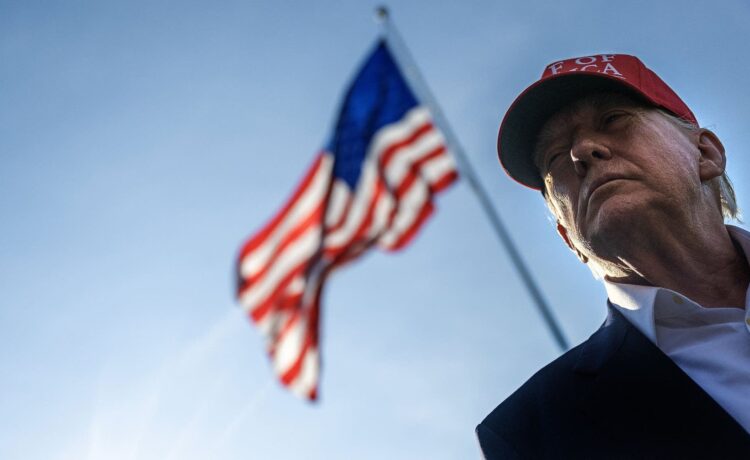This week, President Donald Trump said the baseline rate for so-called “reciprocal” tariffs on countries around the world could now land somewhere between 15% and 50%, an increase from what he had previously floated. This is ahead of a self-imposed Aug. 1 deadline for these tariffs to kick in, and they could change as countries try to negotiate for lower import taxes.
But this idea of high blanket tariff rates begs a question about their purpose. For more on this, “Marketplace Morning Report” host Sabri Ben-Achour spoke with Gene Grossman, professor of international economics at Princeton University. The following is an edited transcript of their conversation.
Sabri Ben-Achour: The president has said he wants blanket tariffs on a large group of countries, just kind of across the board. Some countries are getting higher tariffs. If one stated goal of tariffs is to address trade imbalances, which vary by country, what is the purpose of across-the-board tariffs?
Gene Grossman: You know, it’s not clear exactly what the purposes are, and many of them are in contradiction with each other. Sometimes it’s about trade imbalances, sometimes it’s about bringing manufacturing back home. Sometimes it’s about opening up our trade partners to more U.S. exports. If it’s about trade imbalances, it’s very questionable whether it’s going to work.
Ben-Achour: Yeah, could you talk a little more about the ways in which the goals, the various stated goals of these tariffs, are contradictory?
Grossman: Sure, I mean, in order to reduce the trade deficit, we have to import less, of course. But at the same time, we’re raising the price of imported intermediate goods, of imported inputs, which will make reshoring of production more expensive and more difficult. Another stated goal is to raise revenue so that we can reduce income taxes, as we’ve done. But if we reduce imports, then we’re not going to raise revenue. So it can’t be that we’re reducing the trade deficit and creating a lot of tariff revenue.
Ben-Achour: The president has said that these countries that are getting the across-the-board tariffs, they’re “not big countries. They don’t do that much business.” If that’s the case, will 10%-15% tariffs create production or jobs in the U.S.?
Grossman: Well, I think that that’s not small. I mean, that’s historically a huge tariff. It’s going to have effects on how much we import, and I think imports will drop. But in the longer run, I mean, it’s intended as a shift to manufacturing, to create more output in manufacturing. I think it will have some of that effect. And where is that going to come from? I think it’s going to come away from the services — the advanced, technology-intensive services — that the U.S. should be leading the world in. And I think we will see us seeding some of that leadership to China and to Europe, maybe with consequent effects for long-term growth.
Ben-Achour: So you’re saying that focusing on bringing manufacturing production back will not create jobs because that production is so automated, but it’s also distracting the U.S. economy from areas where we should be focused on strategically competing with, for example, China?
Grossman: Yeah, I think that it’s — I mean, it’s a whole range of policies. It’s not only the tariffs, but the cutback on funding for research, I think, is important. The limitations on the movement of people, migration, are also important. All of it is throwing sand in the wheels of putting us in the lead for the next set of activities for the 21st century, which are not largely going to be manufacturing activities.



